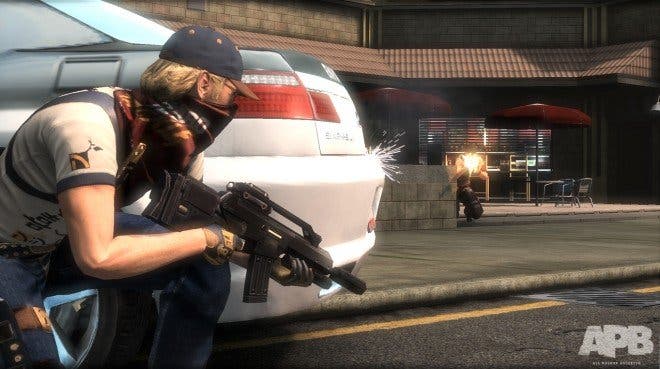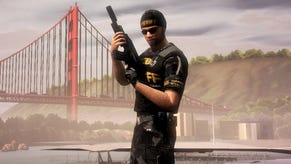The Fall of Realtime Worlds
An insider speaks out.
"APB has been a fantastic journey, but unfortunately that journey has come to a premature end. Today we are sad to announce that despite everyone's best efforts to keep the service running, APB is coming to a close."
With those words, community officer Ben Bateman announced the death of the massively multiplayer shooter APB and the studio that created it, Realtime Worlds. The revelation, which came via the game's official website, marked the climax of one of the industry's most spectacular failures. Despite a team of hundreds, a development period of five years and tens of millions of investment dollars, APB stayed online for just 86 days.
Prior to release, all the indications were that APB would be a success. The Dundee-based studio behind it was headed up by Dave Jones, the creative force behind Lemmings and the Grand Theft Auto series. The core of the same development team had been responsible for the success of Crackdown.
In short, APB had a fantastic pedigree. And a self-published, independent MMO shooter offering unprecedented customisation options, capable of handling up to 10,000 concurrent players per city, had huge potential. So why, on 23rd September 2010, were the plugs pulled on APB? What was it that forced Realtime Worlds to close its doors for the last time?
In the weeks and months that followed, much rumour and anger seeped out from former employees and sources close to the studio. Tales of excess and arrogance, mistreatment and mismanagement abounded. But Ben Bateman tells a different story. The 26 year-old, who hails from Norfolk, paints a picture of an idyllic working environment.

On joining Realtime Worlds from SEGA in January 2009, Bateman took up the role of QA tester. It's an entry level job requiring the endless identification of development bugs. QA jobs are seen as a foot in the door for those eager to make a career for themselves in the games industry.
They're also known to be poorly paid. Testers are often badly treated, regularly employed on "zero hour" contracts that could mean unemployment at a moment's notice. Not so at RTW, according to Bateman.
"One of the brilliant things about working at Realtime Worlds was getting the opportunity to see how radically different everything was," he says. "I was at SEGA before and, this sounds stupid, but they locked up the fruit. It was that kind of environment, where it was like, 'Oh, it's the QA - only one piece of fruit a day!'
"But at Realtime it was like, 'Wow, they've got a pool table!' And the building itself was impressive. And they were really good to us. Even the QA positions were six month contracts. I was talking to family who warned me that it was still a little bit unstable, but it beat the zero hour contracts by a mile."
The studio's treatment of its staff also extended to generous relocation packages for those employees making the journey up to Scotland. They could either take a lump cash sum or accept temporary housing in one the studio's company flats. In addition, RTW offered overtime across the board - unremarkable elsewhere but a rare luxury in the world of videogame development.

Realtime Worlds' working conditions are a reflection of the once buoyant financial state of the company. The studio was a massively attractive prospect to investors. Indeed, Companies House records reveal that by May 2010, RTW had secured a huge $101 million in venture capital.
Though such financial matters were rarely discussed with the lower echelons of the development team, Bateman insists there was "a degree of openness" from the management. He says that from top to bottom, the culture was one of inclusion.
Every Friday the entire staff, including Dave Jones and executive producer Joshua Howard, would gather in the cafeteria for a company-wide meeting. The word cafeteria may suggest an austere room with plastic chairs lined up against fold-up Formica tables, but that wasn't Realtime Worlds style. Their cafeteria was resplendent with concept art-festooned banners, comfy sofas, plasma screens, consoles and a full Beatles Rock Band set-up.
In those weekly meetings, everybody was encouraged to speak up and air their concerns or thoughts. Bateman makes constant references to the company "family," a close-knit group of people with a real love of both the game and the studio. The sense was that everyone was in it together.
Bateman flourished in this environment. Just four months into his contract he was promoted to the role of community officer and tasked with engaging APB's burgeoning fanbase, beginning with the participants of the game's first closed beta.






